Humans
Sign up for our newsletter
We summarize the week's scientific breakthroughs every Thursday.
-
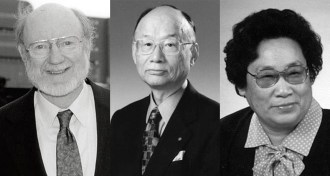 Health & Medicine
Health & MedicineNobel medicine prize won for drugs from natural sources
Nobel Prizes in medicine or physiology awarded for drugs that combat roundworms and malaria
By Tina Hesman Saey and Laura Sanders -
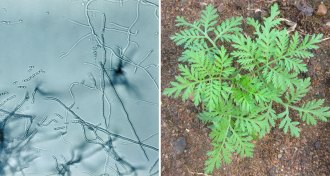 Health & Medicine
Health & MedicineTherapies against roundworm, malaria parasites win medicine Nobel
The 2015 Nobel Prize in medicine or physiology was awarded to Youyou Tu for her work in counteracting malaria, and to William Campbell and Satoshi Omura for work on treatments against roundworm parasites.
-
 Health & Medicine
Health & MedicineFizzy bubbles carry drugs deep into wounds
Bubble-powered drugs burrow into wounds to stop blood loss.
By Meghan Rosen -
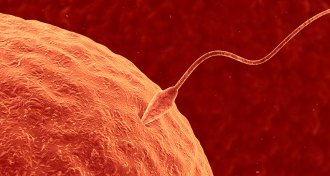 Health & Medicine
Health & MedicineSperm protein may offer target for male contraceptive
With the identification of a new sperm protein that helps sperm penetrate eggs, researchers may be closer to developing birth control pills for men.
By Meghan Rosen -
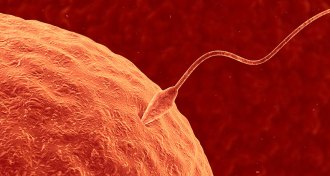 Health & Medicine
Health & MedicineSperm protein may offer target for male contraceptive
With the identification of a new sperm protein that helps sperm penetrate eggs, researchers may be closer to developing birth control pills for men.
By Meghan Rosen -
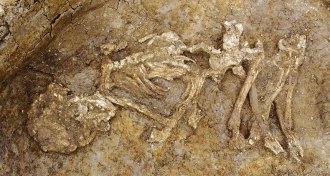 Anthropology
AnthropologyBronze Age mummies identified in Britain
Bone analysis finds widespread mummy making in ancient England and Scotland.
By Bruce Bower -
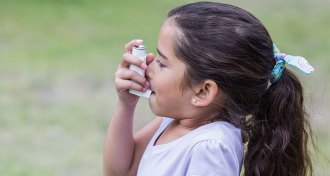 Life
LifeBabies low on key gut bacteria at higher risk of asthma
Asthma risk may be set early in life, but mice data suggest that the risk could altered by friendly gut bacteria.
-
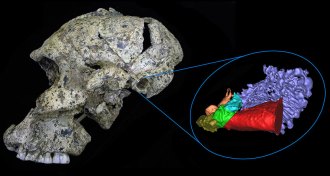 Anthropology
AnthropologyAncient hominid ears were tuned to high frequencies
Two ancient hominid species may have heard high-frequency sounds especially well.
By Bruce Bower -
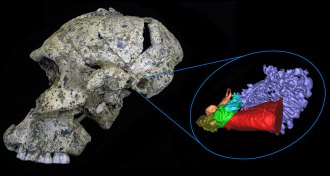 Anthropology
AnthropologyAncient hominid ears were tuned to high frequencies
Two ancient hominid species may have heard high-frequency sounds especially well.
By Bruce Bower -
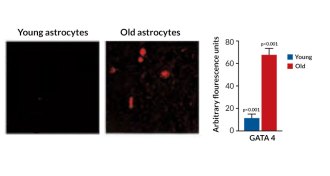 Health & Medicine
Health & MedicineWhat makes cells stop dividing and growing
Scientists have found that the protein GATA4 helps control cellular senescence, and may be a target for treating aging-related diseases.
-
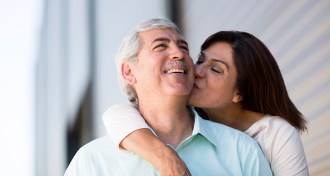 Health & Medicine
Health & MedicineHaving sex doesn’t trigger heart attacks, study suggests
Sex doesn’t trigger heart attacks, study of patients with cardiovascular disease suggests.
By Meghan Rosen -
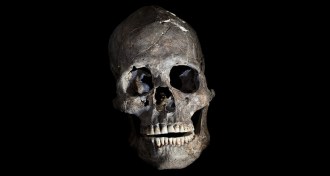 Anthropology
AnthropologyMore than 9,000-year-old decapitated head discovered in Brazil
Human decapitation goes back more than 9,000 years in the Americas.
By Bruce Bower